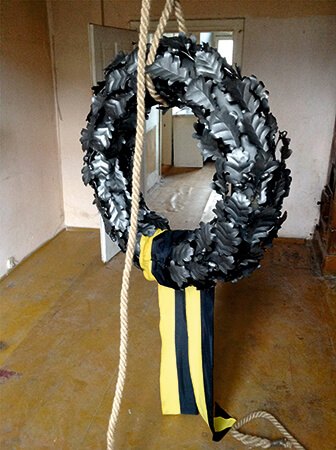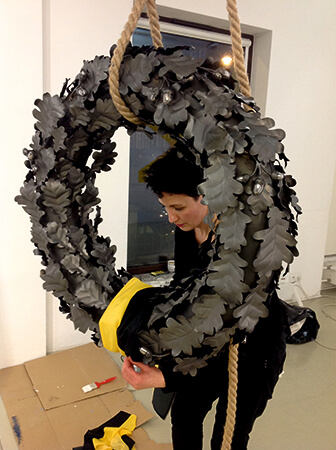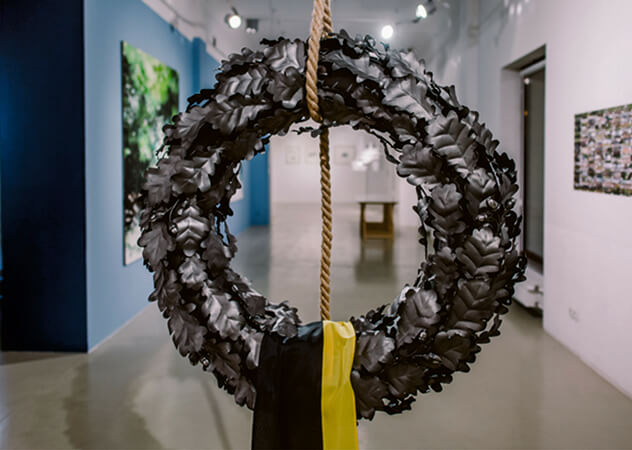Corona Civica (for the merits of outstanding citizens)
| title: |
Corona Civica (for the merits of outstanding citizens) |
| year: | 2017 |
| dimensions: | 90/90/25cm |
| technique: | sculpture object, steel, fabric, hemp rope |
| description: | The form of the Corona Civica object refers to the commemoration of the undoubtedly outstanding German-Kashubian writer - Günter Grass. The work symbolically refers to the social and cultural identity of the writer, whose exemplification is his work. The object resembles a wreath with stylized oak leaves cut from sheet steel. The theme of acorns and oak branches has been found in royal and knightly coats of arms since the Middle Ages. It was also used in uniforms emblems. He was a symbol of strength, nobility and fame. It was used especially in Germanic military symbolism, to which German armies eagerly referred. A long, black and yellow ribbon was wound around a steel wreath, as a reference to Grass's Kashubian roots. The idea of the object is the same as the words of another German writer, Martin Pollack, who for many years has been studying national and his own dramatic identity. In his book Topography of Remembrance, he exposes historical narratives on the topics of: repressing the memory of crime, inheriting guilt, looking for invisible places of execution that marked all Eastern Europe.
Studying the history - your own, but also someone else's, without any prejudices, is the most important condition for understanding yourself, finding your own identity - and meeting the Other on an equal level. Without history, it can not be done. We must never be tempted to want to throw over the national narratives overboard, to erase them from the memory, because we are afraid that when we confront them, they can spoil something, become an obstacle. Everything must be said, written down, even if it can still be painful today. All stories must be told, one must not be silent about any tragedy. However, we must constantly remember to not lose sight of our goal, which is to understand the Others, accepting them as they are, with all the weight of their history. |
© Dorota Nieznalska 2009-2023 | privacy policy
website implementation: Brandrei.com


